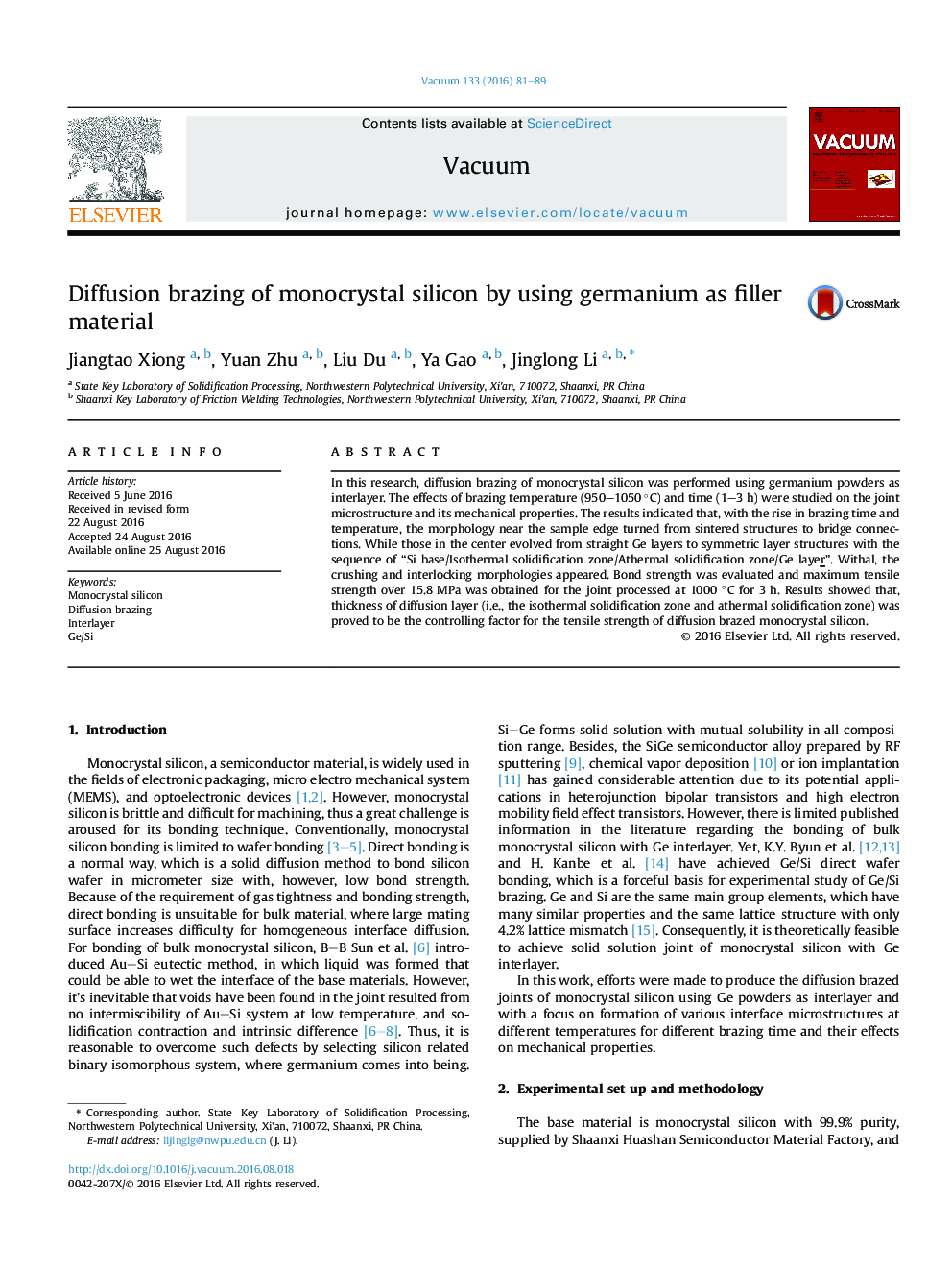| Article ID | Journal | Published Year | Pages | File Type |
|---|---|---|---|---|
| 1689038 | Vacuum | 2016 | 9 Pages |
Abstract
In this research, diffusion brazing of monocrystal silicon was performed using germanium powders as interlayer. The effects of brazing temperature (950-1050 °C) and time (1-3 h) were studied on the joint microstructure and its mechanical properties. The results indicated that, with the rise in brazing time and temperature, the morphology near the sample edge turned from sintered structures to bridge connections. While those in the center evolved from straight Ge layers to symmetric layer structures with the sequence of “Si base/Isothermal solidification zone/Athermal solidification zone/Ge layer”. Withal, the crushing and interlocking morphologies appeared. Bond strength was evaluated and maximum tensile strength over 15.8 MPa was obtained for the joint processed at 1000 °C for 3 h. Results showed that, thickness of diffusion layer (i.e., the isothermal solidification zone and athermal solidification zone) was proved to be the controlling factor for the tensile strength of diffusion brazed monocrystal silicon.
Keywords
Related Topics
Physical Sciences and Engineering
Materials Science
Surfaces, Coatings and Films
Authors
Jiangtao Xiong, Yuan Zhu, Liu Du, Ya Gao, Jinglong Li,
